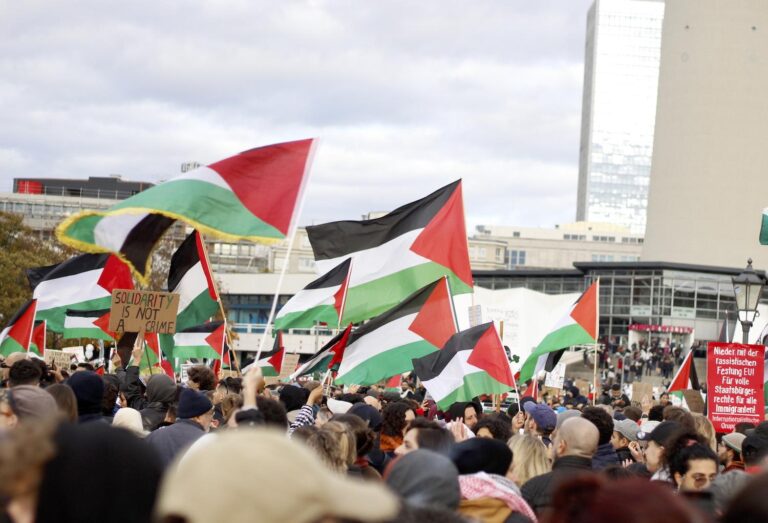France’s President Emmanuel Macron has announced the postponement of a United Nations conference aimed at advancing the two-state solution to the Israeli-Palestinian conflict. The delay underscores the ongoing diplomatic complexities surrounding Palestinian statehood and international efforts to revive peace talks. As tensions persist in the region, Macron’s decision reflects both the challenges facing global mediators and the delicate geopolitical landscape that continues to hinder progress toward a negotiated settlement.
Palestinian Statehood Efforts Stall as Macron Announces Postponement of UN Conference
The international momentum toward establishing a Palestinian state has encountered fresh setbacks following President Emmanuel Macron’s announcement to postpone the upcoming UN conference originally intended to address the two-state solution. Macron cited ongoing regional tensions and the need for broader consensus among key stakeholders as primary reasons for the delay. This decision has fueled concerns among Middle East peace advocates who fear the delay may further complicate an already fragile diplomatic landscape.
Key factors contributing to the postponement include:
- Regional security challenges: Escalating conflicts in neighboring countries have diverted focus from peace negotiations.
- Lack of consensus: Differing international agendas have stalled agreement on conference objectives.
- Domestic political pressures: Leadership changes and public opinion in France and Palestine influencing diplomatic timing.
| Stakeholder | Position on Conference | Expected Impact |
|---|---|---|
| France | Supports but urges delay | Seeks wider consensus |
| Palestinian Authority | Disappointed but hopeful | Calls for renewed international support |
| Israel | Neutral; cautious | Prefers bilateral talks |
| United States | Observing | Awaiting clearer roadmap |
French President Emphasizes Diplomatic Challenges in Advancing Two-State Solution
French President Emmanuel Macron acknowledged the increasing obstacles facing international efforts to revive the two-state solution amid ongoing tensions in the Israeli-Palestinian conflict. Highlighting the complexity of diplomatic negotiations, Macron confirmed that an anticipated UN conference aimed at advancing Palestinian statehood has been postponed, citing the lack of mutual consensus and prevailing geopolitical uncertainties. The French leader emphasized the necessity for renewed dialogue and constructive engagement from all parties involved to overcome entrenched divisions.
Macron outlined several pivotal challenges hindering progress, including:
- Continued settlement expansions complicating territorial agreements
- Political fragmentation within both Israeli and Palestinian leadership
- Reduced international consensus affecting coordinated diplomatic pressure
He urged the global community to redouble their efforts and maintain support for peace initiatives while stressing France’s commitment to facilitating a durable and just resolution. The postponement serves as a reminder of the delicate balance required to advance peace and the ongoing volatility that undermines prospects for a future Palestinian state.
| Key Factor | Impact on Solution |
|---|---|
| Settlement Activity | Reduces trust, shifts borders |
| Leadership Divisions | Weakens negotiation positions |
| International Support | Shapes diplomatic leverage |
Calls for Renewed International Commitment and Strategic Dialogue to Revive Peace Talks
International stakeholders have expressed urgent concerns following the announcement by French President Emmanuel Macron regarding the postponement of the United Nations conference on the two-state solution. The delay has intensified calls among diplomats and regional leaders for a reinvigorated strategic dialogue that prioritizes direct communication channels between Israeli and Palestinian representatives. Key global actors emphasize that without renewed political will and cohesive international backing, prospects for meaningful progress toward a peaceful resolution remain bleak.
In light of these developments, analysts suggest a multi-layered approach should be adopted to break the current deadlock, including:
- Enhanced mediation efforts led by impartial third parties capable of facilitating trust-building measures.
- Increased humanitarian support to alleviate immediate needs, creating a conducive environment for negotiations.
- Structured multilateral forums aimed at cohesive coordination between the UN, regional powers, and civil society.
| Stakeholder | Role in Dialogue | Recent Actions |
|---|---|---|
| France | Initiator of UN Conference | Postponed conference, calling for renewed engagement |
| UN | Facilitator of Peace Process | Provided platform for talks, supporting humanitarian aid |
| Regional Leaders | Negotiators and Influencers | Advocated for increased dialogue and peace-building steps |
In Conclusion
The postponement of the United Nations conference on the two-state solution, announced by French President Emmanuel Macron, underscores the persistent challenges facing efforts to resolve the Israeli-Palestinian conflict. As diplomatic momentum stalls, the international community continues to grapple with how best to support a viable path toward Palestinian statehood and lasting peace in the region. Observers will be closely watching forthcoming developments and the responses from key stakeholders in the Middle East and beyond.




